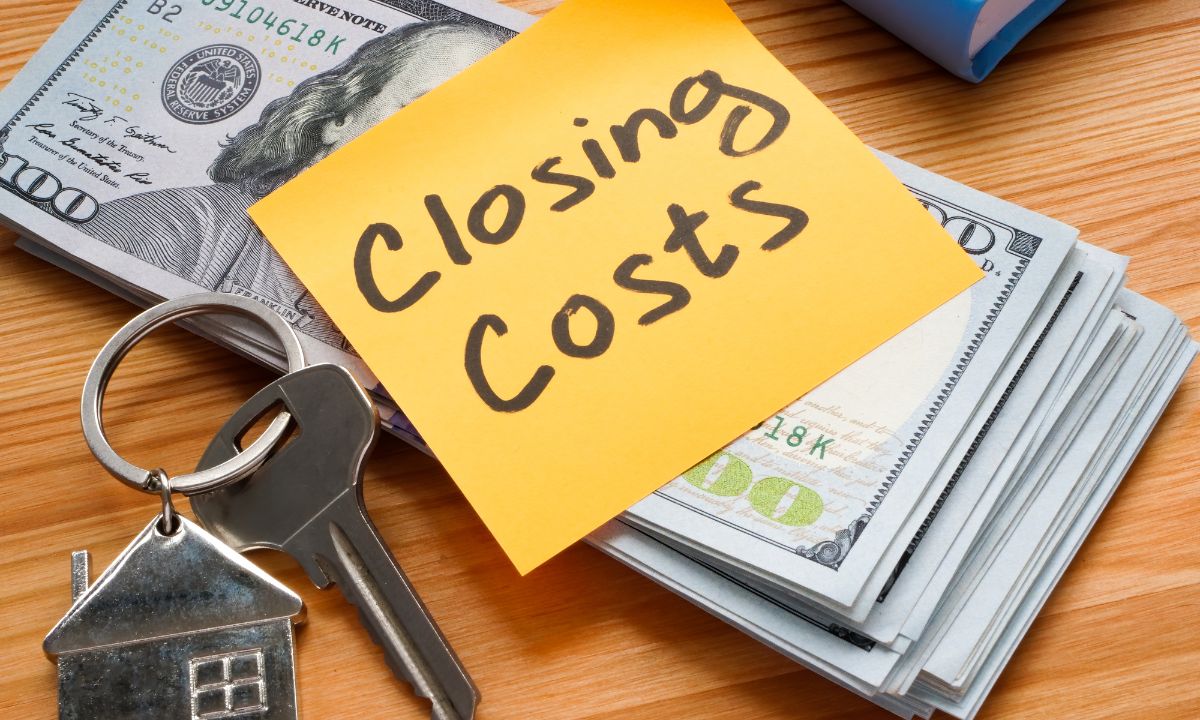Can I Roll Closing Costs Into My Mortgage to Reduce My Upfront Expenses?
 Buying a home is an exciting milestone, but it also comes with a range of upfront costs that can add up quickly. One of the biggest financial concerns for many homebuyers is closing costs. These expenses, which typically range from 2 to 5 percent of the home’s purchase price, can put a strain on your budget. If you are wondering whether you can roll your closing costs into your mortgage to reduce your upfront expenses, the answer depends on the type of loan you are using and your lender’s guidelines.
Buying a home is an exciting milestone, but it also comes with a range of upfront costs that can add up quickly. One of the biggest financial concerns for many homebuyers is closing costs. These expenses, which typically range from 2 to 5 percent of the home’s purchase price, can put a strain on your budget. If you are wondering whether you can roll your closing costs into your mortgage to reduce your upfront expenses, the answer depends on the type of loan you are using and your lender’s guidelines.
Understanding your options can help you make the best financial decision while keeping your home purchase affordable.
What Are Closing Costs?
Closing costs are the fees and expenses required to finalize your home purchase. They include charges for services such as loan origination, appraisal, title insurance, and escrow fees. While some costs are negotiable, most are necessary to complete the transaction. Common closing costs include:
- Loan Origination Fees – Charged by the lender for processing the mortgage application.
- Appraisal Fees – Paid to a professional appraiser to determine the home’s market value.
- Title Insurance – Protects against potential ownership disputes or legal claims.
- Escrow and Prepaid Costs – Includes homeowners insurance, property taxes, and prepaid interest.
- Attorney Fees – In some states, an attorney is required to handle the closing process.
These costs can add up quickly, making it difficult for some buyers to come up with the necessary funds upfront.
Can Closing Costs Be Rolled Into a Mortgage?
In some cases, you can roll closing costs into your mortgage to reduce your out-of-pocket expenses. However, this depends on the type of loan you are using and whether your home’s value can support the increased loan amount.
Rolling Closing Costs into a Purchase Loan
For conventional, FHA, and VA loans, rolling closing costs into the mortgage is generally not allowed. Lenders set loan limits based on the appraised value of the home or the purchase price, whichever is lower. This means that closing costs must usually be paid separately and cannot be added to the loan amount.
However, there are alternatives to reduce upfront costs, such as:
- Lender Credits – Some lenders offer credits in exchange for a slightly higher interest rate, reducing your upfront costs.
- Seller Concessions – The seller may agree to cover some or all of the closing costs as part of the negotiation.
- Down Payment Assistance Programs – Some local and state programs offer grants or low-interest loans to help with closing costs.
Rolling Closing Costs into a Refinance Loan
If you are refinancing your home, rolling closing costs into the loan is much more common. In a rate-and-term refinance, lenders often allow closing costs to be included in the new loan balance as long as the total loan amount does not exceed the home’s appraised value. This option helps borrowers refinance without needing a large upfront payment.
For a cash-out refinance, closing costs are typically included in the new loan, as the borrower is taking out additional equity from the home. However, this results in a higher loan balance and potentially higher monthly payments.
Pros and Cons of Rolling Closing Costs into Your Mortgage
While rolling closing costs into your mortgage can reduce your upfront expenses, it is important to weigh the advantages and disadvantages.
Pros
- Reduces Immediate Out-of-Pocket Costs – Helps buyers who may not have enough cash saved for both the down payment and closing costs.
- Keeps More Cash on Hand – Allows buyers to reserve savings for home improvements, moving expenses, or emergency funds.
- Simplifies the Homebuying Process – Avoids the stress of coming up with additional funds at closing.
Cons - Higher Loan Balance – Increases the total amount borrowed, leading to higher monthly payments and more interest paid over time.
- Potential for a Higher Interest Rate – If lender credits are used, the interest rate may be slightly higher than a loan with full upfront closing costs.
- Limited Options for Purchase Loans – Most purchase loans do not allow closing costs to be added directly to the loan amount.
Alternatives to Cover Closing Costs
If rolling closing costs into your mortgage is not an option, there are other ways to reduce upfront expenses:
- Negotiate with the Seller – Ask the seller to cover part of the closing costs, especially in a buyer’s market.
- Choose a No-Closing-Cost Mortgage – Some lenders offer a no-closing-cost option in exchange for a slightly higher interest rate.
- Use Gift Funds – Many loan programs allow buyers to use gift funds from family members to cover closing costs.
- Look for Assistance Programs – Many state and local programs offer financial assistance for homebuyers struggling with upfront costs.
Is Rolling Closing Costs into Your Mortgage the Right Choice?
Deciding whether to roll closing costs into your mortgage depends on your financial situation and long-term goals. If keeping upfront costs low is a priority, exploring lender credits, seller contributions, or assistance programs may be a better solution. However, if you are refinancing and have enough home equity, rolling closing costs into your loan can be a convenient way to avoid out-of-pocket expenses.
Before making a decision, speak with a mortgage professional to review your options and determine the best approach based on your financial needs. Every borrower’s situation is different, and understanding how closing costs impact your overall mortgage can help you make an informed choice.

 If you’ve received your Closing Disclosure from your lender, congratulations! You’re almost at the finish line of your home buying journey, ready to celebrate with keys in hand. The Closing Disclosure, or CD, is provided at least three business days before your closing appointment and details your loan terms, projected monthly payments, and the much-discussed “cash to close.” But what exactly is “cash to close,” and how is it calculated?
If you’ve received your Closing Disclosure from your lender, congratulations! You’re almost at the finish line of your home buying journey, ready to celebrate with keys in hand. The Closing Disclosure, or CD, is provided at least three business days before your closing appointment and details your loan terms, projected monthly payments, and the much-discussed “cash to close.” But what exactly is “cash to close,” and how is it calculated? Buying a home is an exciting journey, but it’s not without its twists and turns. One specific daunting aspect for many homebuyers is understanding the sphere of closing costs. These additional expenses can catch even the most prepared buyers off guard if they’re not properly understood. So, let’s discuss the world of closing costs and shed some light on what to expect when purchasing your dream home.
Buying a home is an exciting journey, but it’s not without its twists and turns. One specific daunting aspect for many homebuyers is understanding the sphere of closing costs. These additional expenses can catch even the most prepared buyers off guard if they’re not properly understood. So, let’s discuss the world of closing costs and shed some light on what to expect when purchasing your dream home.